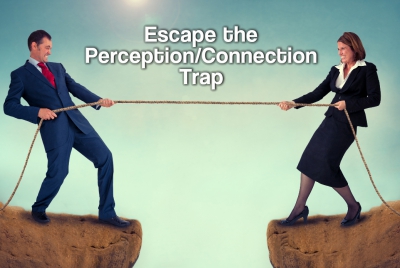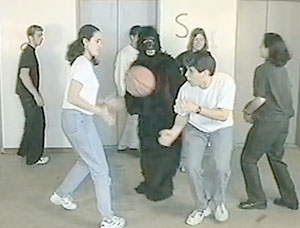Escape The Perception/Connection Trap
https://savethemarriage.com/stmblog/wp-content/themes/corpus/images/empty/thumbnail.jpg 150 150 Lee H. Baucom, Ph.D. Lee H. Baucom, Ph.D. https://secure.gravatar.com/avatar/669b7e375d93f77521ddaba08adb8063?s=96&d=blank&r=pg It is not about “communication,” no matter what you hear (from friends or a therapist). Most people communicate just fine. They have another issue: perception. How they perceive each other, that is the bigger issue.
It is not about “communication,” no matter what you hear (from friends or a therapist). Most people communicate just fine. They have another issue: perception. How they perceive each other, that is the bigger issue.
And then the trap is laid.
Perception and connection. They create a downward spiral (unless you escape it) that traps you into a fall into disconnection.
I call it the Perception/Connection Trap. You have perceptions of each other (that are always at least partly fictional), and you have some level of connection. When your perceptions of each other are poor (negative), your connection begins to falter. When you are feeling disconnection, your perceptions grow more negative. Which leads to further disconnection. Which leads to further negative perceptions.
The spiral downward.
The bad news is this pattern traps many couples into a painful marriage crisis.
The good news is that you can escape the Perception/Connection Trap. And the great news is that you can use the reverse of the cycle to re-grow the connection and the relationship.
Learn how in this week’s podcast trying (and if you find it helpful, please use the SHARE buttons below).
RELATED RESOURCES
Connection Tools & Resources
Happy Couples Do Differently: Connection
7 Stages of Disconnection
5 Communication Errors You May Be Making
Why We Don’t Change (And How To)
Save The Marriage System
Podcast: Play in new window | Download
Subscribe: RSS
